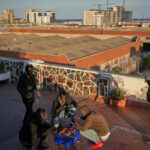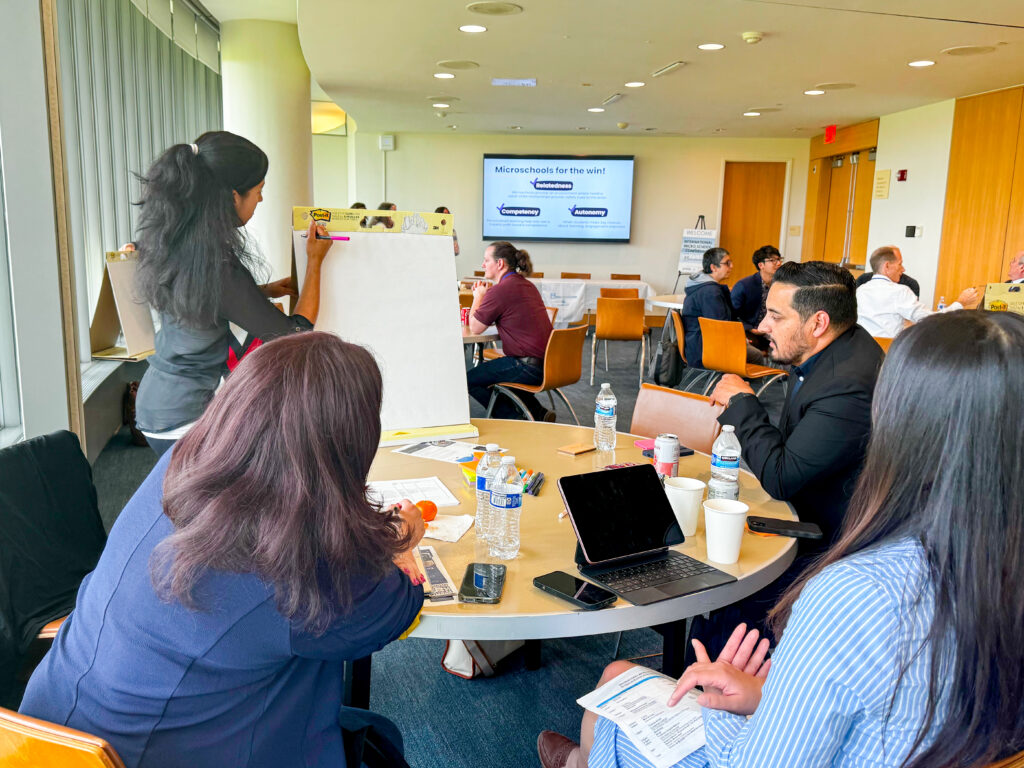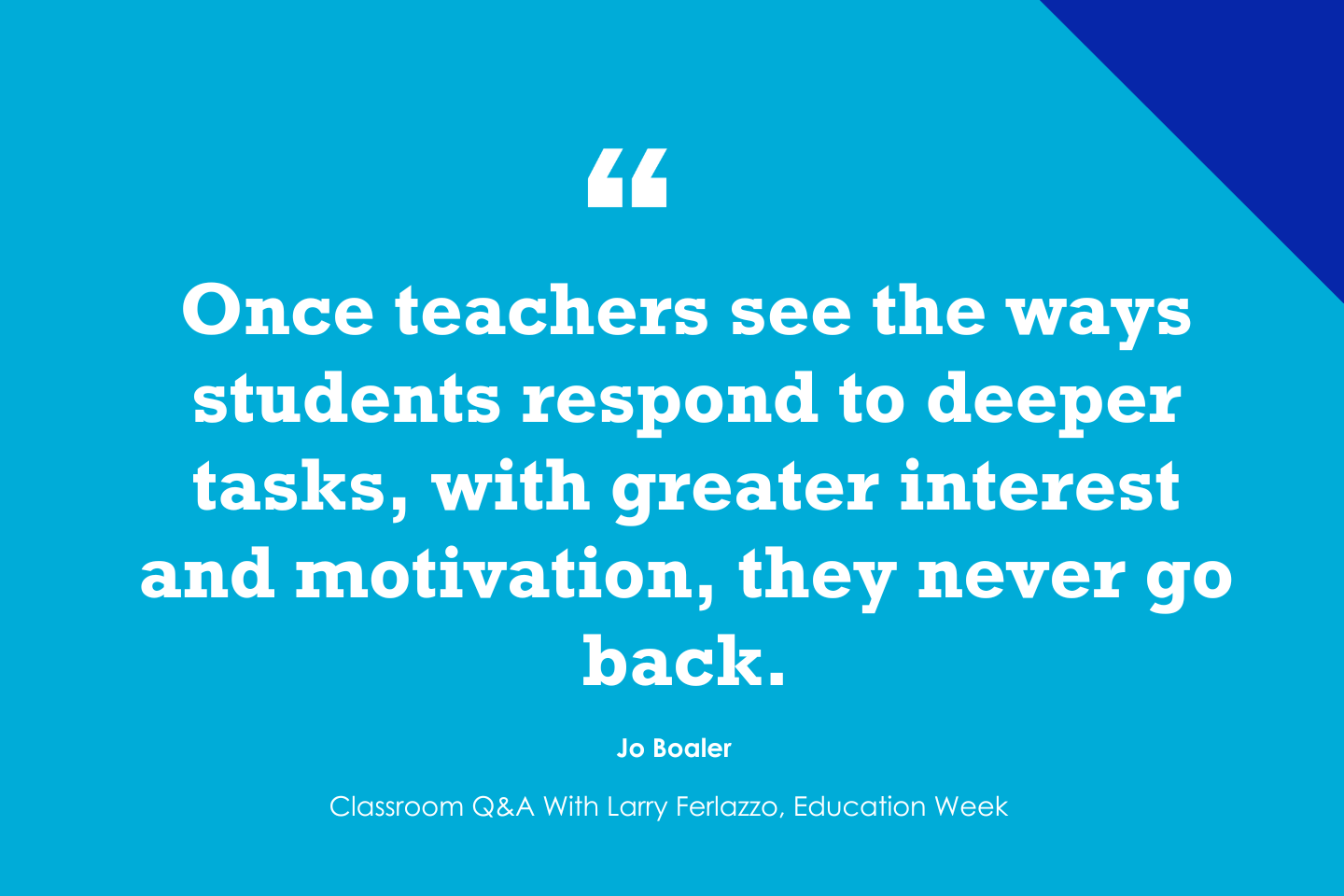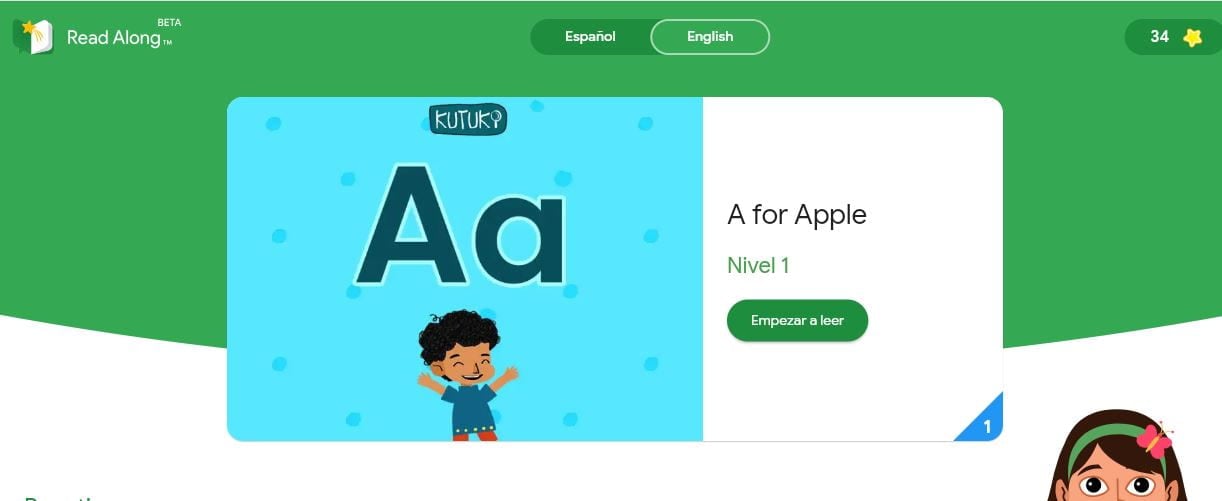By: Lizette Valles
Recently, the Smithsonian’s National Museum of the American Indian in Washington, DC, served as a vibrant venue for the first-ever International Micro School Conference hosted by Microschools.com, Mysa, and Prenda. This event gathered a global community of microschool leaders, educators, researchers, social entrepreneurs, and innovators, all sharing a common goal: to explore and expand the horizons of microschools – small learning environments designed to provide highly personalized learning experiences. This gathering was not just a conference but a celebration of innovation, community, and the potential of education to adapt and thrive in diverse environments. As a participant, I had the unique opportunity to engage with this diverse group and now share the compelling insights and experiences from this gathering.
A Global Gathering of Visionaries
The conference featured an impressive lineup of speakers from around the globe, each sharing their unique insights into the evolving world of education. Among them was Tim Vieira, founder of Brave Generation Academy and presidential candidate of Portugal, who shared his vision for a school without walls that extends its learning environment into the community. His approach not only breaks the physical barriers of traditional schooling but also integrates 61 global hubs from the US to Mozambique, creating a truly international learning network.
Another standout session was led by Mohammed Rezwan, founder and architect of Shidulai Swanirvar Sangstha, known for their innovative Floating Schools in Bangladesh. These floating schools, libraries, playgrounds, health clinics, and training centers in flood-prone areas are essential as they offer a poignant example of how education can be tailored to meet the specific needs of a community, ensuring that learning never stops, even in the face of natural disasters.
Challenges and Innovations in Education
Thomas Arnett, senior research fellow at the Clayton Christensen Institute, led a session on transforming education and addressed the systemic barriers that often stifle educational innovation. His focus on organizational autonomy, catering to unconventional students, and promoting opt-in adoption provided a framework for thinking about how new educational models can be successfully implemented.
Data-Driven Approaches to Homeschooling
Dr. Angela Watson, founder of the John Hopkins Homeschool Hub and Research Lab, brought attention to the rapidly growing sector of homeschooling and shared insights on trends and regulations. She emphasized the need for policies informed by robust data, saying, “As homeschooling continues to expand and evolve, we need a better understanding of this growing and diversifying education sector. We need policy based on facts, not historical stereotypes. My hope is that the Homeschool Hub will help fill these needs.” Her presentation emphasized the importance of developing stronger data and policies that accurately represent the modern state of homeschooling. This shift away from outdated misconceptions aims to foster a more evidence-based comprehension of its effects and scope by providing accessible data and research to the public.
Historical Perspectives and Future Directions
Professor James Tooley, Vice-Chancellor and President of The University of Buckingham, and described by Philanthropy magazine as “a 21st century Indiana Jones” traveling to “the remotest regions on Earth researching something that many regard as mythical: private, parent-funded schools serving the Third World poor” provided a historical lens on the microschool movement, discussing the evolution of low-cost private schools across various countries. His insights into the characteristics that have helped these schools succeed offered valuable lessons for anyone looking to support or launch similar models. He has helped to create a chain of low-cost private schools in India, Ghana, Honduras, and most recently established one in the north-east of England with the proper infrastructures and resources needed to advance equitable, accessible, and inclusive education.
Creating Spaces of Possibility
The workshop I led, along with notable educators such as Coi Morefield (Lab School of Memphis), Andrew Lee (Vita Schools of Innovation), Oscar Valles (Ellemercito Academy), and Lana Tran (Project Olives) focused on the concept of “Creating Spaces of Possibility: Transforming the Mundane to Magical.” Through a dynamic fishbowl-style discussion, we explored strategies for reconceptualizing educational spaces and cultivating supportive learning communities. We engaged closely with the audience, discussing how any space can be transformed into areas of creativity, safety, and innovation, and offered a holistic approach that views every environment as an opportunity for engaging and transformative learning. The energy in the room was palpable as participants shared their experiences and dreams for creating educational environments and school cultures that transcend the mundane to achieve the magical. The main goal was to provide a time of reflection so that founders could realize they have already created spaces of possibility, as most of our programs represent what parents have desired for their children but did not know existed. The overarching aim was to inspire educators and leaders to view the collective learning cultures of our microschooling communities as what they truly are—unique, needed, and indeed, magical.
Neuroscience and Education
Kaity Broadbent, Prenda’s Chief Empowerment Advocate, delved into the neuroscience behind learning and its implications for education during her workshop “Changing Childhood and Education.” She discussed the critical roles of connection, competence, and autonomy in fostering environments where students can thrive mentally and physically. Understanding brain-based approaches to learning underscores the importance of aligning educational techniques with how students naturally learn and process information, a crucial consideration for anyone involved in educational planning and curriculum design.
Reflections and Future Outlooks
The two days of the conference were not just about sharing knowledge but also about building a community of individuals committed to rethinking and reshaping education. The collaborative atmosphere was a reminder that while the challenges are significant, the potential for impactful change is enormous.
As I reflect on the myriad discussions, workshops, and panels, I am struck by the resiliency, social entrepreneurship, and creativity of educators worldwide. The shared commitment to improving education through innovative, community-focused solutions was inspiring. The conference not only provided a platform for sharing best practices but also sparked conversations that will resoundingly continue to influence the educational landscape long into the future.
Lizette Valles, M.Ed., is the founder of Ellemercito Academy, a Los Angeles-based microschool, with a focus on project/place-based learning with a strong focus on trauma-informed teaching approaches.
The post Microschools with a World Vision: Insights from the First International Micro School Conference appeared first on Getting Smart.
A recent conference spotlit microschools and new school models from around the world – here are a few of the key moments and takeaways.
The post Microschools with a World Vision: Insights from the First International Micro School Conference appeared first on Getting Smart. Equity & Access, Learner-Centered, Personalized Learning, collaboration, community, design thinking, growth mindset, learning design Getting Smart









